Northern Muriqui Brachyteles hypoxanthus
Critically Endangered
Extant (resident)
Brazil (Bahia, Espírito Santo, Minas Gerais)
Northern Muriquis (AKA Woolly Spider Monkeys) have a striking light brown and golden fur and are known for their rattling vocalisations. They live in large communities and act as critical seed dispersers in the Atlantic forest. There are fewer than 800 individuals left alive and they are critically endangered. Their main threats are palm oil, meat and soy deforestation in Brazil, along with illegal hunting. Help them every time you shop and be #vegan, #Boycottpalmoil and #Boycott4Wildlife

Northern Muriquis are critically #endangered by #hunting, #palmoil, #soy, #meat #deforestation in #Brazil. Help them survive and be #vegan, #Boycottpalmoil #Boycott4Wildlife in the supermarket!
Tweet
Highly social Northern muriquis have a stunning golden coat and are crucial for seed dispersal in #Brazil – yet they are now critically endangered by #palmoil and other threats. Fight for them and #Boycottpalmoil #Boycott4Wildlife
Tweet
Muriquis are the largest species of New World monkeys coated in a striking gold and light brown fur. They use their long prehensile tails and agile arms to travel with speed and grace through the rainforest canopy. They are rapidly disappearing from our world, mainly because of palm oil, meat and soy deforestation.
Appearance & Behaviour
Their long prehensile tails and willowy long arms assist with swinging through the tree tops. Yet Northern Muriqui also spend a fair amount of time socialising, playing, embracing each other, feeding and resting on the ground. They are most active during daylight hours.
Highly social, northern muriquis live in large groups of 48-81 individuals made up of young infants, juveniles and adults of both sexes.
Smaller sub-groups will rest and feed separately with males spending time together in all-male groups and mothers with infants spending time away from other females to nurse and rest with infants, along with occasionally socialising with other females.
They use distinct vocalisations for long and short distance communications.

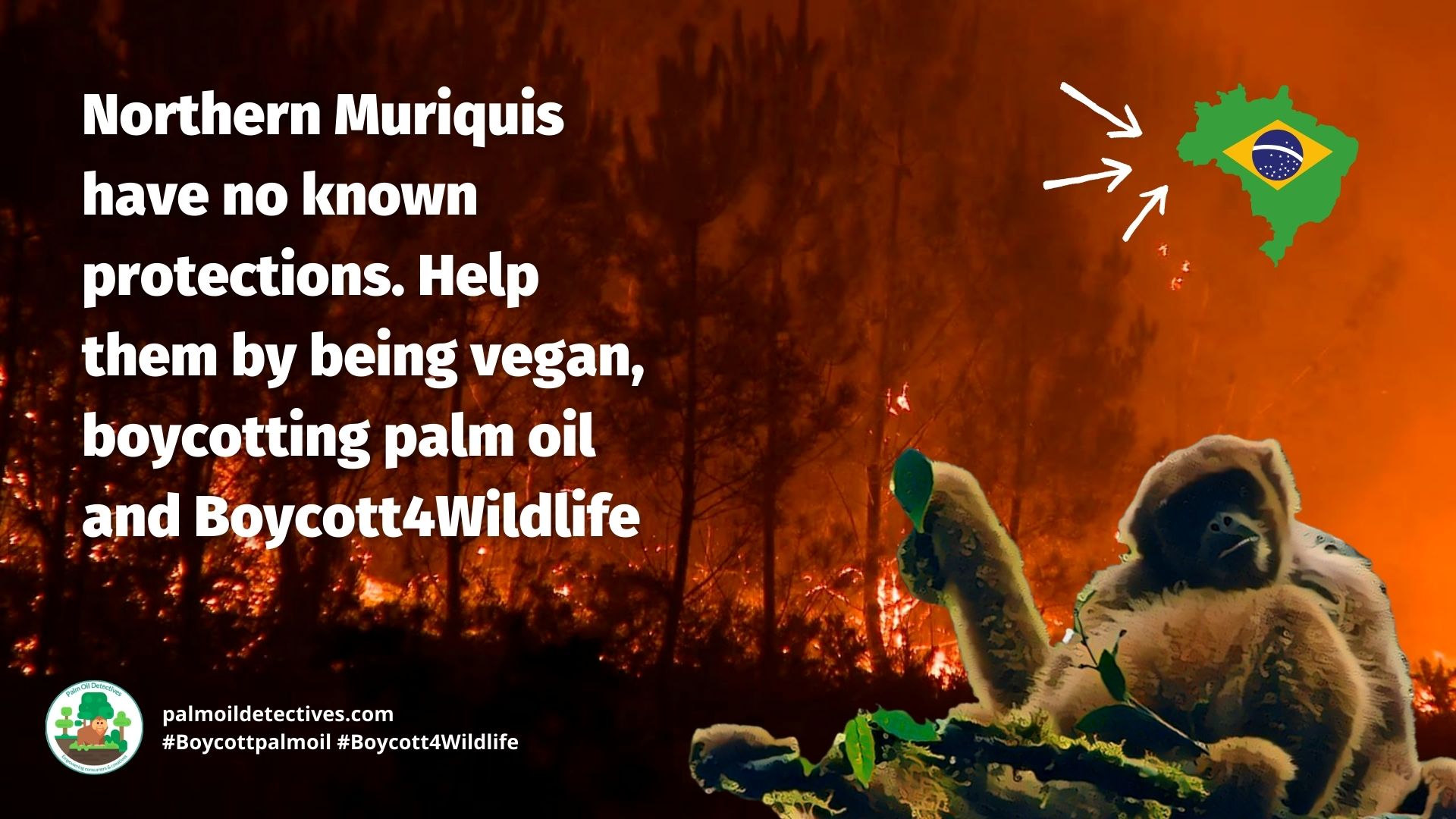
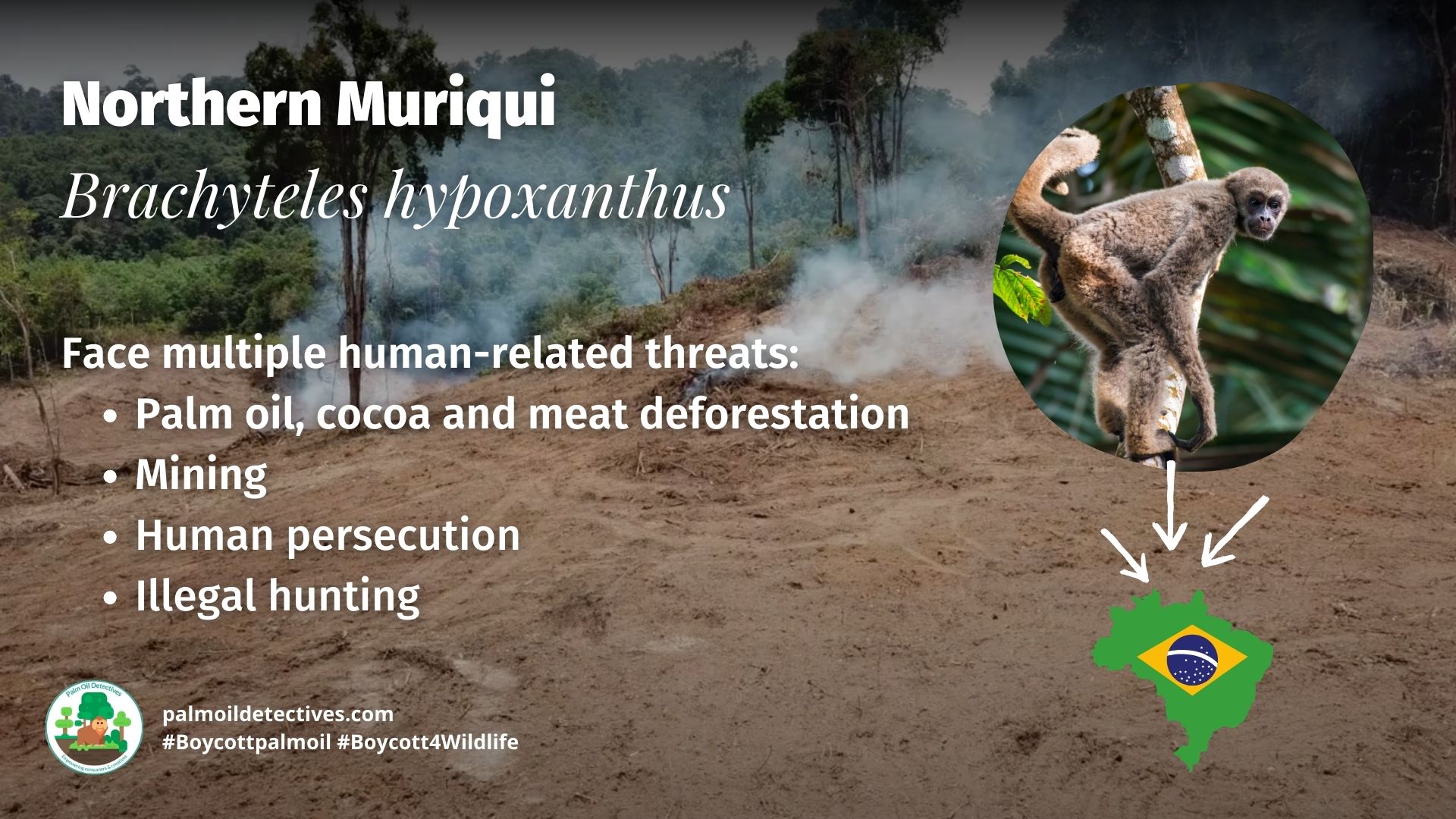
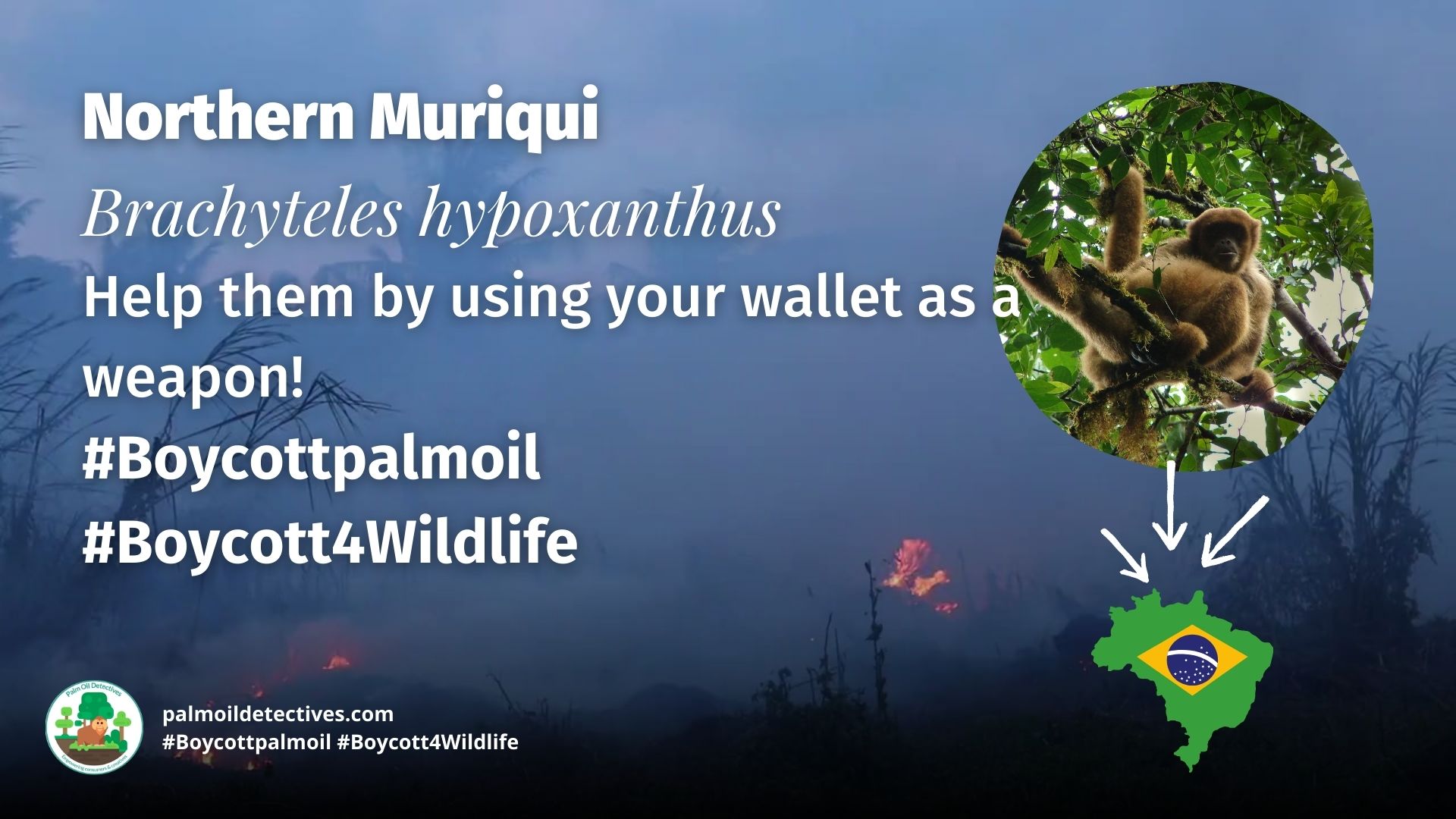
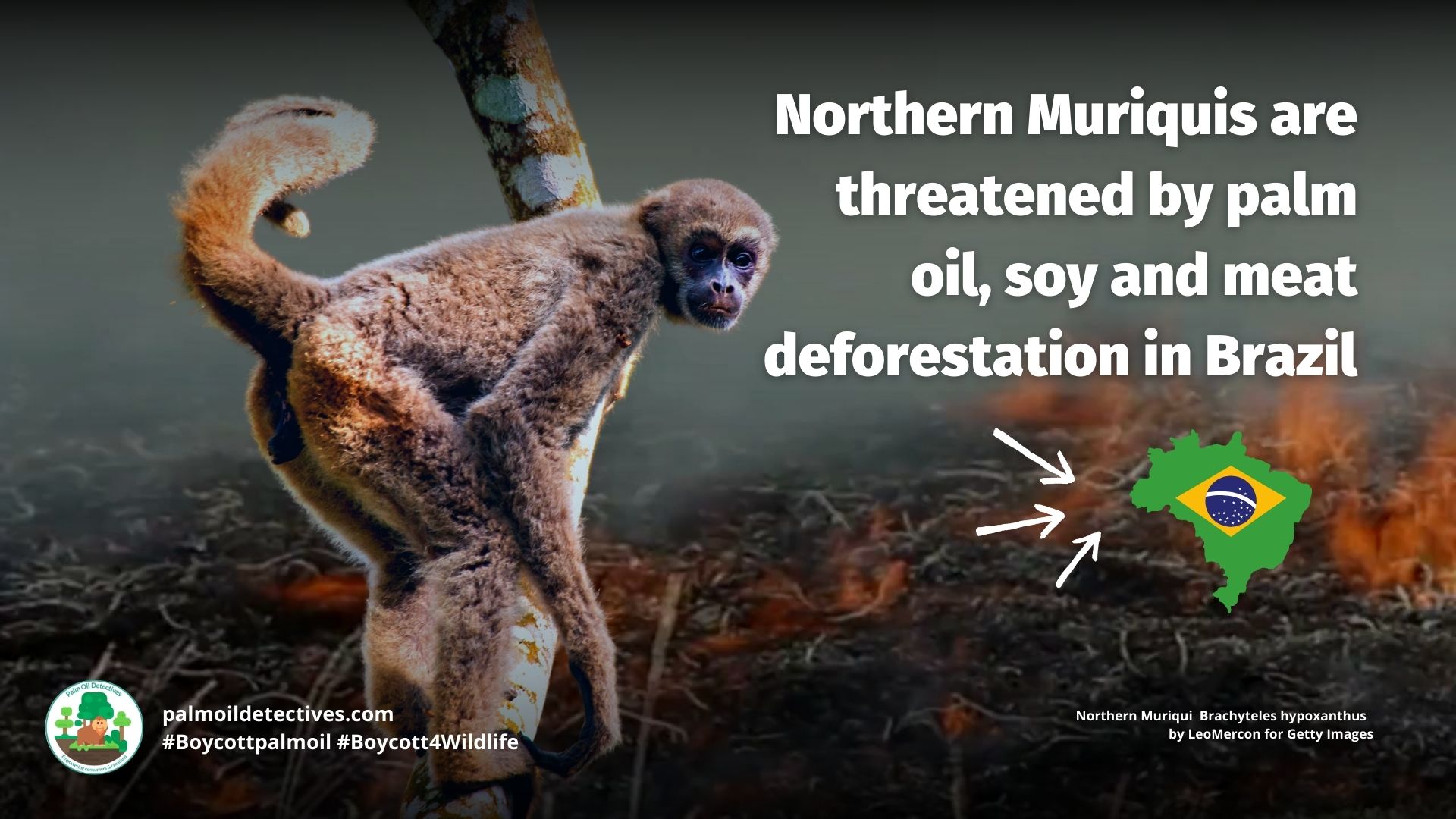

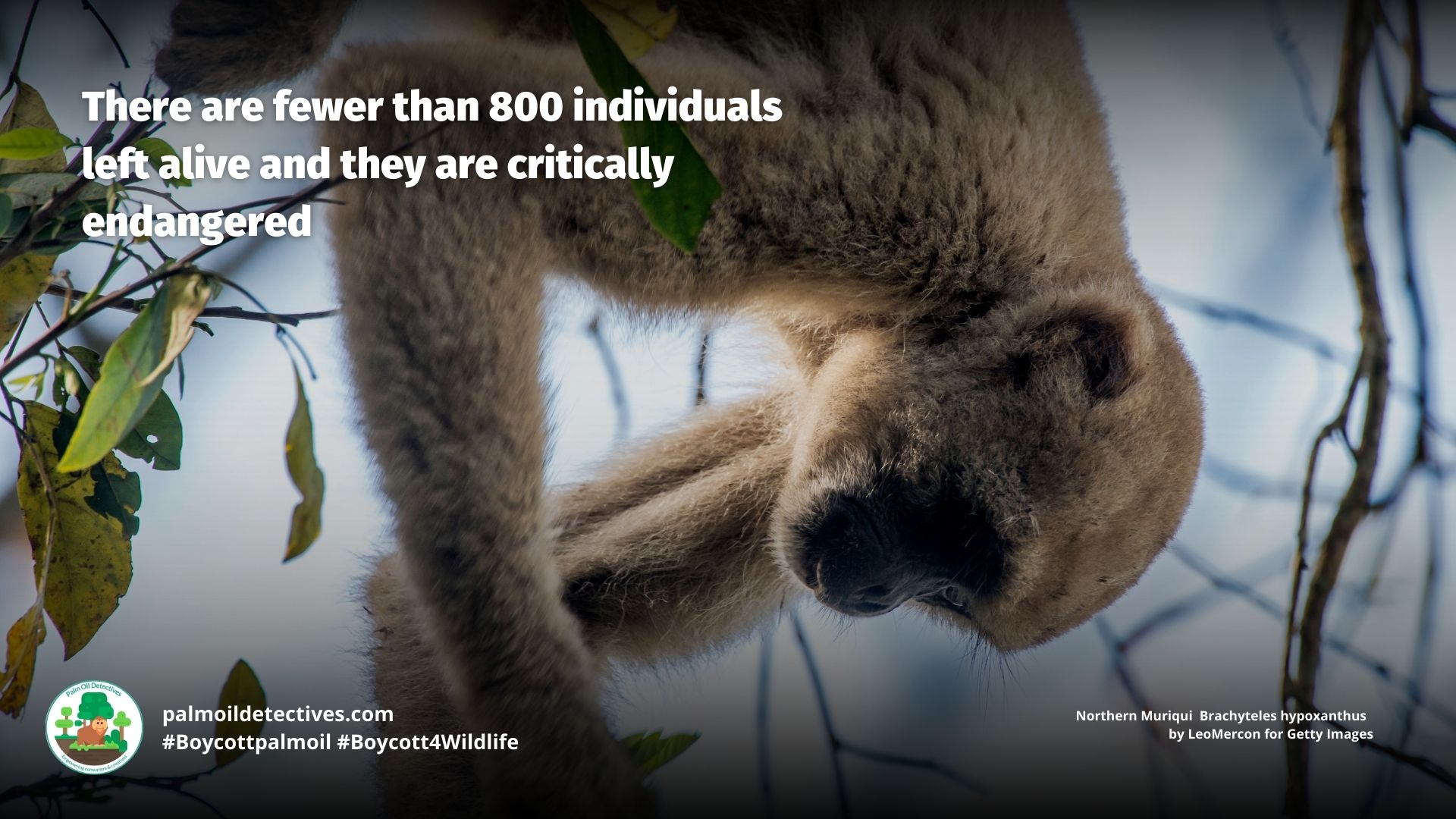

Threats
Northern muriquis have very low genetic diversity meaning that their population may not be sustainable. There are thought to be fewer than <855 individuals left. They face a range of anthropogenic threats, including:
- Palm oil deforestation: Their Atlantic forest home is being destroyed for palm oil plantations.
- Soy deforestation: Another threat to the rainforest is soy plantations.
- Meat deforestation: Their forest is being destroyed to make way for cattle ranching and meat deforestation.
- Hunting and human persecution: seen as a food source in times of scarcity and hunger for local people.
This species survives in much reduced and isolated populations – none of which alone are believed to be viable in the long term—none exceed 500 individuals, and the largest known is that in the RPPN Feliciano Miguel Abdala (about 230 individuals).
IUCN RED LIST



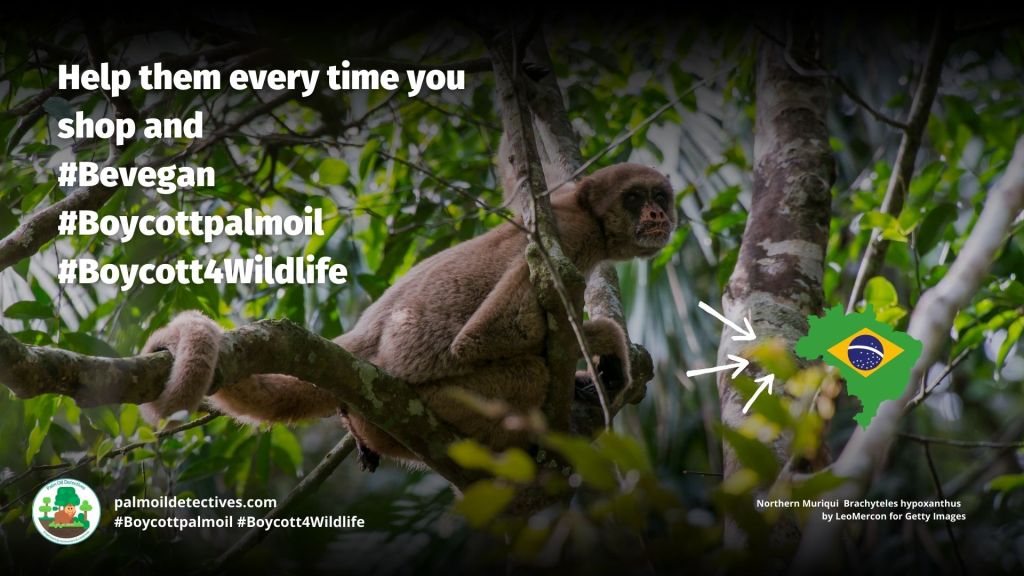
Habitat
These large New World monkeys are found in the Atlantic Forest region of the Brazilian states of Rio de Janeiro, Espírito Santo, Minas Gerais, and Bahia. They thrive in tropical forests.
Diet
Northern muriquis are herbivores with their fruit, leaves, flowers, vine and seed diet being critically important for the dispersal of seeds in their ecosystem, helping the forest to grow.
Mating and breeding
Female and male northern muriquis are polygynandrous (in other words promiscuous). Both males and females have multiple partners during mating season.
Mating takes place during the period of October to April with infants between May to October. After a gestation period of 7 months, the mother will give birth to one infant and care for this offspring for up to 2 years. Females reach sexual maturity aged 5-11 years old and males at 4-8 years old.
Support Northern Muriquis by going vegan and boycotting palm oil in the supermarket, it’s the #Boycott4Wildlife
Support the conservation of this species
This animal has no protections in place. Read about other forgotten species here. Create art to support this forgotten animal or raise awareness about them by sharing this post and using the #Boycottpalmoil #Boycott4Wildlife hashtags on social media. Also you can boycott palm oil in the supermarket.
Further Information
Mendes, S.L., de Oliveira, M.M., Mittermeier, R.A. & Rylands, A.B. 2008. Brachyteles hypoxanthus. The IUCN Red List of Threatened Species 2008: e.T2994A9529636. https://dx.doi.org/10.2305/IUCN.UK.2008.RLTS.T2994A9529636.en. Accessed on 12 November 2022.
Northern Muriqui Brachyteles hypoxanthus on Wikipedia
Northern Muriqui Brachyteles hypoxanthus on Animalia.bio

How can I help the #Boycott4Wildlife?
Contribute in five ways
1. Join the #Boycott4Wildlife on social media and subscribe to stay in the loop: Share posts from this website to your own network on Twitter, Mastadon, Instagram, Facebook and Youtube using the hashtags #Boycottpalmoil #Boycott4Wildlife.
2. Contribute stories: Academics, conservationists, scientists, indigenous rights advocates and animal rights advocates working to expose the corruption of the palm oil industry or to save animals can contribute stories to the website.
3. Supermarket sleuthing: Next time you’re in the supermarket, take photos of products containing palm oil. Share these to social media along with the hashtags to call out the greenwashing and ecocide of the brands who use palm oil. You can also take photos of palm oil free products and congratulate brands when they go palm oil free.
4. Take to the streets: Get in touch with Palm Oil Detectives to find out more.
5. Donate: Make a one-off or monthly donation to Palm Oil Detectives as a way of saying thank you and to help pay for ongoing running costs of the website and social media campaigns. Donate here

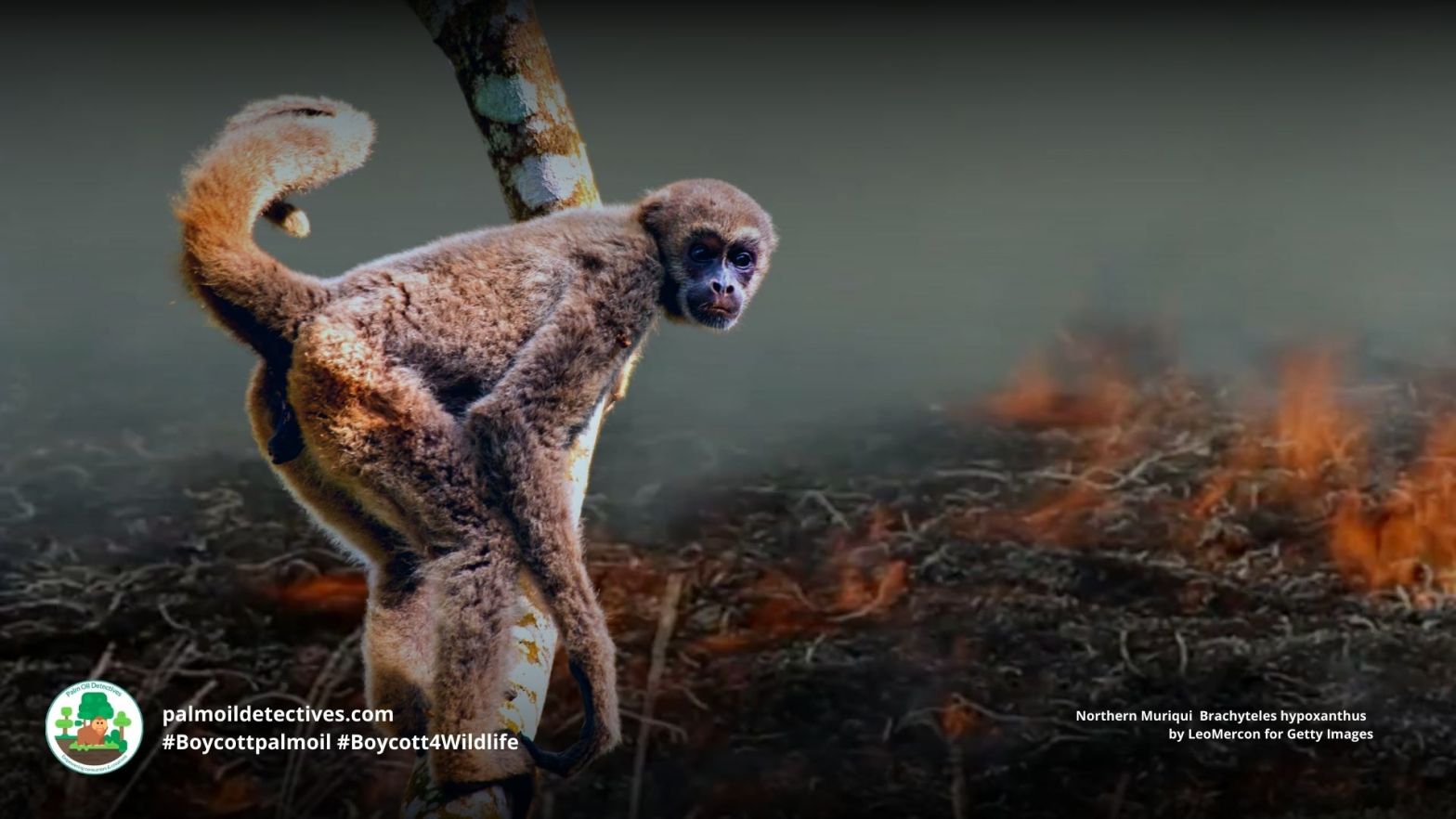






Everything seems to contain palm oil and people don’t care . The government has to do something about this tragedy because species are dying. Corporate greed is all about lining their pockets with no care about the animals they are inevitably killing.
LikeLiked by 2 people
Thanks so much Catherine for your help on Twitter sharing out my posts, so appreciate it. Also you can help by joining with our ongoing campaign boycotting palm oil on social media, you can share out posts with one click on every page of my website. On the Take Action page you can learn more about other ways to help too. https://palmoildetectives.com/contribute/take-action/
LikeLike
Thanks so much for sharing this really appreciate your help 🙂
LikeLike